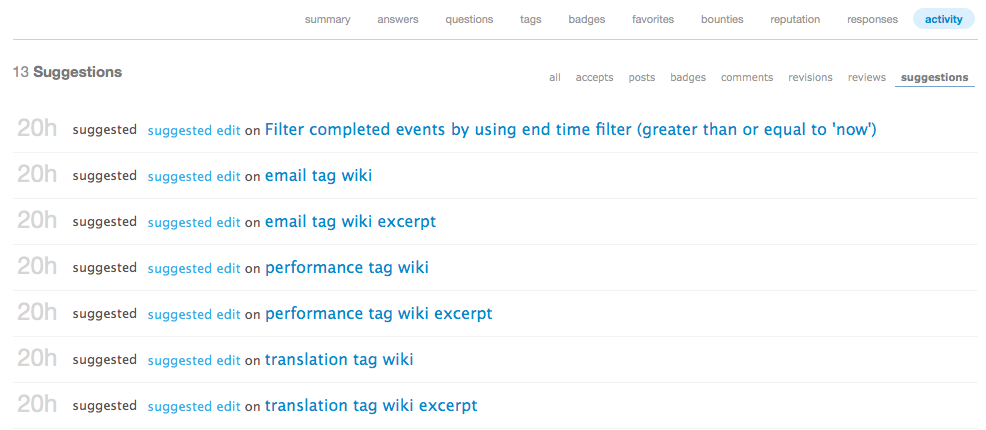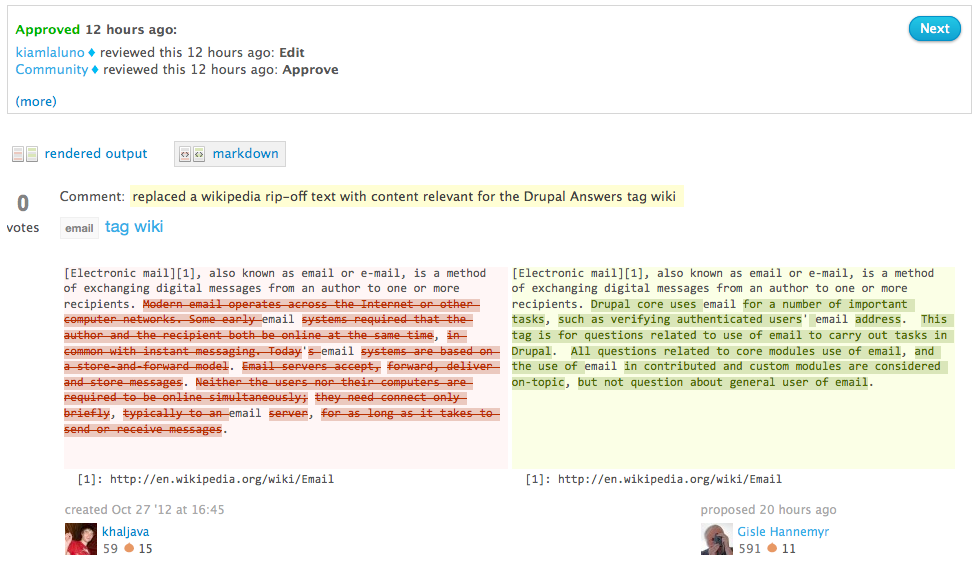Yesterday, I had a couple of hours to kill, so I decided to improve the tag wiki by writing summaries and descriptions for some tags where those were missing. Today, I see that only a single one of my suggested tag wiki descriptions have been accepted. The rest must have been rejected by the moderators (my "edit" button is grayed out and I get the "Too many of your edits were rejected, try again in 7 days"-message).
I am familiar with the reasons edits are rejected (summarised here). I want to find out how they apply in my case. The edits were not minor, since I in most cases typed in long, complete descriptions where none or only rudimentary descriptions existed previously. They were not comments. And they were not derogatory. I did not copy text from other sources. This means that the moderators decided that they were wrong. The moderators have of course the right to make that call. However, I believe I know Drupal reasonable well, and I took care describing the meaning of the tag in a Drupal context, rather than just supplying a dictionary or wikipedia-like description. If I thought I did not have a clear understanding of the tag in relation to Drupal, I did not write a description for the tag.
When I go through my activity list, I see that I did suggest edits to flesh out a rudimentary performance tag and wrote a full description for translation tag yesterday. Both were rejected. The performance tag has a history: https://drupal.stackexchange.com/posts/16295/revisions - but the history does not show my version. Instead, the history shows that an excerpt (i.e. "how to measure, and improve it") from my edit was added by one of the moderators around midnight (UTC) today. There is no history at all for translation.
Now, being locked out og editing for seven days is not the end of the world. But in a sense, I feel I am being penalised for doing what I belived was a civic act. And I am not happy about my work being rejected. Until there exists clear guidelines about what is expected from those who contribute time to write tag wiki descriptions, I will certainly not attempt to supply any more tag wiki descriptions here.
I am interested in getting feedback from the moderator who rejected my contributions about his grounds. (A PM will suffice, there is a contact link on my profile page. But please no idle speculation from others who know nothing about these specific edits.)
However the question actually asked here is this: Are there any guidelines for how to write tag wiki descriptions? Since mine were rejected for being wrong, I am curious about the specifications for writing correct ones. I would appreciate it if answers or comments could focus on that question.
PS: When editing is blocked, the ability to review new user posts should also be blocked. When reviewing, it is very frustrating to not be allowed to correct the bad formatting of code snippets, etc. that frequently show up in posts from new users.


